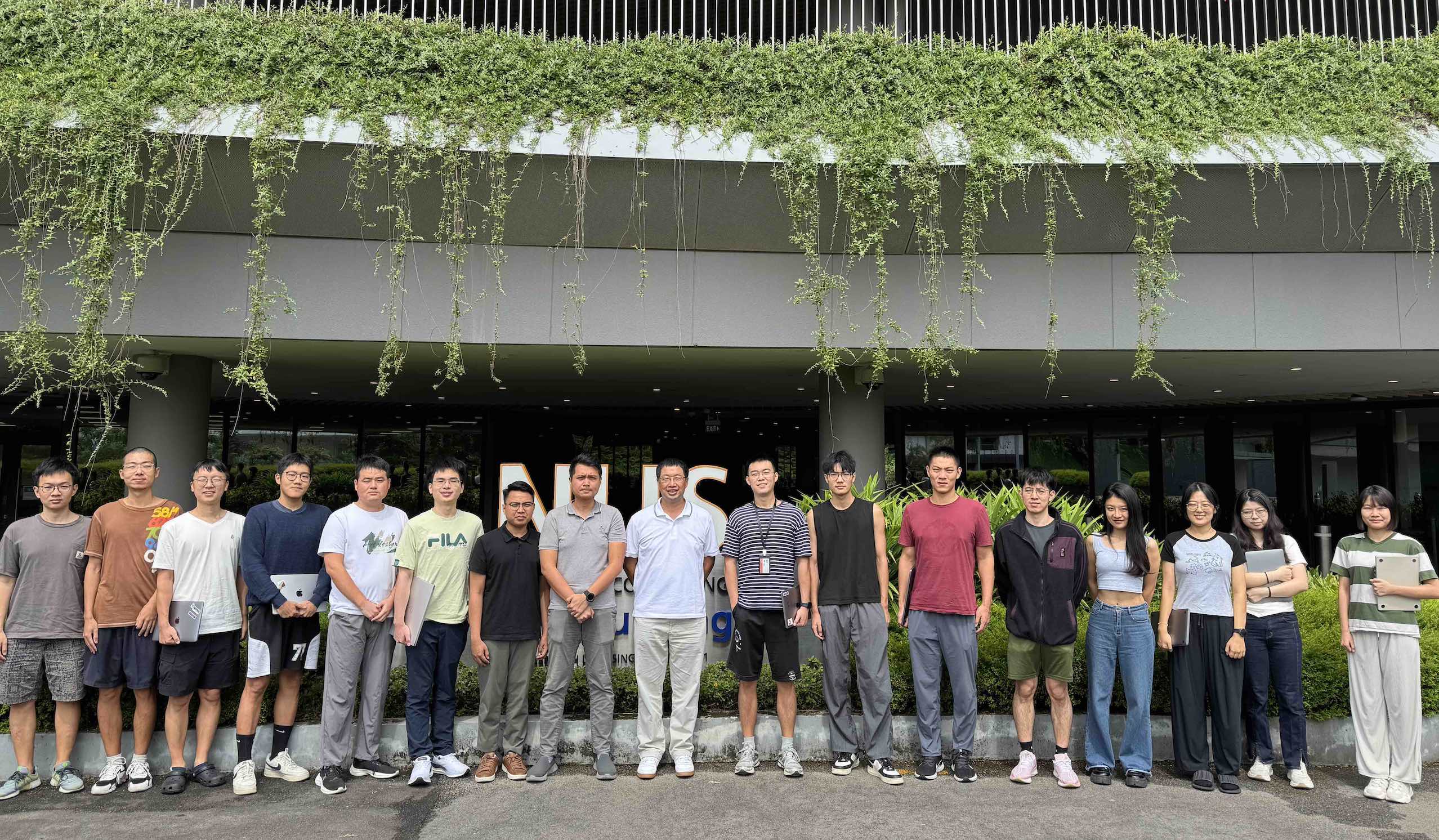Welcome to CuriOSity!

CuriOSity is a cybersecurity research group led by Prof. Zhenkai Liang at NUS.
Our research mainly focuses on system security, covering provenance, anomaly detection, trusted computing, Android malware detection, cyber range and attack replay, vulnerability detection and management, program analysis, fuzzing and testing, AI for security, etc.
Our Missions:
- Understand systems (理解系统)
- Abstract knowledge (提炼知识)
- Connect facts (参悟规律)
Our group ethos is: Be interesting people, do meaningful work. We strive to embody this ethos — to think deeply, collaborate openly, and act purposefully. Through understanding systems, abstracting knowledge, and connecting facts, we seek both elegance in thought and meaning in action.

Latest News
🎉 Our recent work on kernel auditing is accepted at S&P'26!
🎉 Our junior students' work on strategy analysis of tennis games wins the Distinguished Paper Award at ISACE'25!
🎉 Our recent work on LLM-based log parsing is accepted at ASE'25!
🎉 Our recent work on software-supply-chain vulnerability assessment is accepted at ASE'25!
🎉 Our recent work on evaluating disassemblers with only binaries is accepted at AsiaCCS'25!
🎉 Our recent work on sandboxing client data in CVMs is accepted at EuroSys'25!
Featured Publications
Refer to this link for the full list of publications.
Kernel Auditing using Augmented Reference Behavior Analysis and Virtualized Selective Tracing
In the 47th IEEE Symposium on Security and Privacy (S&P), 2026.
PromoGuardian: Detecting Promotion Abuse Fraud with Multi-Relation Fused Graph Neural Networks
In the 47th IEEE Symposium on Security and Privacy (S&P), 2026.
TAPPecker: TAP Logic Inference and Violation Detection in Heterogeneous Smart Home Systems
In International Symposium on Research in Attacks, Intrusions, and Defenses (RAID), 2025.
TANS: A Chess-Inspired Notation System for Strategy Analysis of Tennis Games
Distinguished Paper AwardIn the 2nd International Sports Analytics Conference and Exhibition (ISACE), 2025.
Improving LLM-based Log Parsing by Learning from Errors in Reasoning Traces
In the 40th IEEE/ACM International Conference on Automated Software Engineering, 2025.
Propagation-Based Vulnerability Impact Assessment for Software Supply Chains
In the 40th IEEE/ACM International Conference on Automated Software Engineering, 2025.
Evaluating Disassembly Errors With Only Binaries
In ACM Asia Conference on Computer and Communications Security, 2025.
Erebor: A Drop-In Sandbox Solution for Private Data Processing in Untrusted Confidential Virtual Machines
In the 20th ACM European Conference on Computer Systems, 2025.
Fuzzing the PHP Interpreter via Dataflow Fusion
Distinguished Paper AwardIn the 34th USENIX Security Symposium, 2025.
UI-CTX: Understanding UI Behaviors with Code Contexts for Mobile Applications
In the 32nd Network and Distributed System Security Symposium, 2025.
The HitchHiker's Guide to High-Assurance System Observability Protection with Efficient Permission Switches
In Proceedings of the 31th ACM Conference on Computer and Communications Security, 2024.
MaskDroid: Robust Android Malware Detection with Masked Graph Representations
In Proceedings of the 39th IEEE/ACM International Conference on Automated Software Engineering, 2024.
CrypTody: Cryptographic Misuse Analysis of IoT Firmware via Data-flow Reasoning
In 27th International Symposium on Research in Attacks, Intrusions and Defenses (RAID 2024).
KernJC: Automated Vulnerable Environment Generation for Linux Kernel Vulnerabilities
Best Practical Paper AwardIn 27th International Symposium on Research in Attacks, Intrusions and Defenses (RAID 2024).
UIHASH: Detecting Similar Android UIs through Grid-Based Visual Appearance Representation
In Proceedings of the 33rd USENIX Security Symposium, 2024.
Detecting Logic Bugs in Graph Database Management Systems via Injective and Surjective Graph Query Transformation
In Proceedings of the 46th IEEE/ACM International Conference on Software Engineering, 2024.
Learning Graph-based Code Representations for Source-level Functional Similarity Detection
In Proceedings of the 45th International Conference on Software Engineering, 2023.
PalanTír: Optimizing Attack Provenance with Hardware-enhanced System Observability
In Proceedings of the 29th ACM Conference on Computer and Communications Security, 2022.
FlowMatrix: GPU-Assisted Information-Flow Analysis through Matrix-Based Representation
In Proceedings of the 31st USENIX Security Symposium, 2022.
Tell: Log Level Suggestions via Modeling Multi-level Code Block Information
In Proceedings of the 31st ACM SIGSOFT International Symposium on Software Testing and Analysis, 2022.
ShadeWatcher: Recommendation-guided Cyber Threat Analysis using System Audit Records
In Proceedings of the 43rd IEEE Symposium on Security and Privacy, 2022.
Watson: Abstracting Behaviors from Audit logs via Aggregation of Contextual Semantics
In Proceedings of the 28th Annual Network and Distributed System Security Symposium, 2021.
